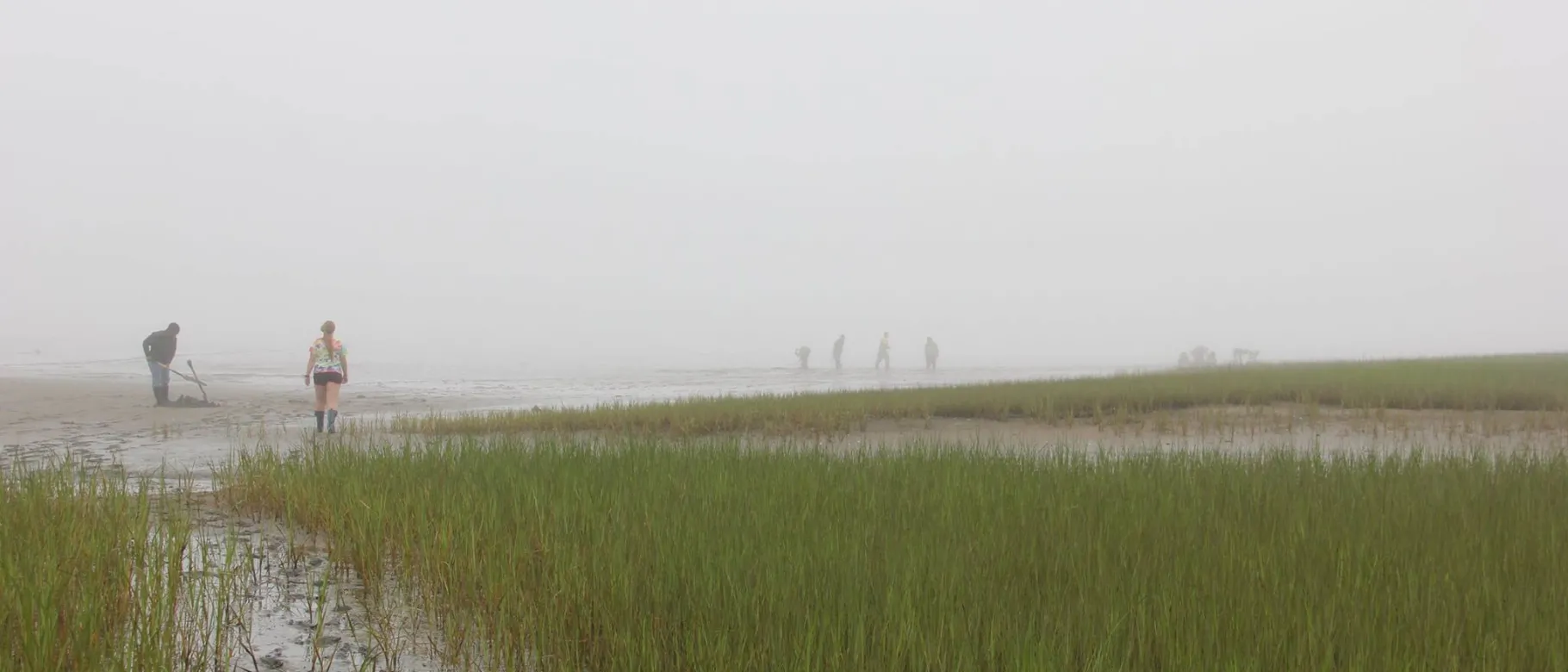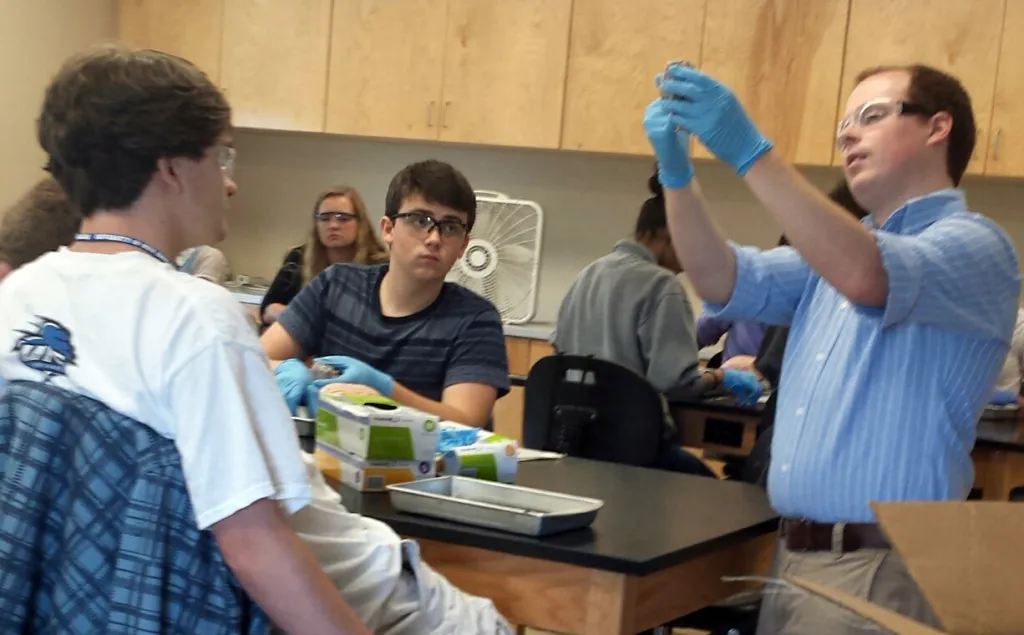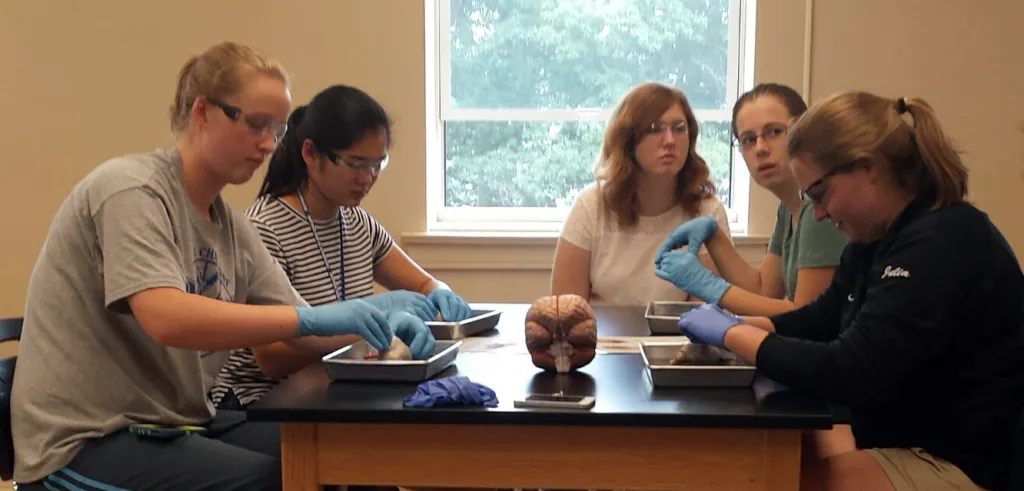Early College program at UNE offers high school students opportunity to learn, earn and experience

The University of New England’s annual Early College Program enables high school juniors and seniors from across the country the opportunity to earn three college credits in two or three-week sessions over the summer by studying a field of interest while getting a taste of college life.
This year’s sessions are in full swing, and this summer, one former Early College participant has made the transition from student to teacher.
Early College alum Hannah Cutting, who recently graduated with a B.S. in marine biology from UNE, has just come full circle in her Early College experience.
A resident of Sebago, Maine, Cutting enrolled in the Early College program during the summer of 2010 as a rising senior at Lake Region High School and participated in the Coastal Marine Ecology program (CME). As the result of her experience, she applied to UNE as an undergraduate and majored in marine biology. “The CME Early College program helped me figure out if I really wanted to pursue marine biology as my college major, and it also gave me an idea of what it’s like living on a college campus,” she shared. “I liked the small campus community of UNE, and I was not considering attending UNE at the time, but after my two weeks on campus I decided it was at the top of my list.”
On Sunday, July 19, the latest cohort of Early College participants arrived on UNE’s Biddeford Campus, and Cutting assumed the position of student assistant in the Neuroscience program, working with faculty and staff to mentor the high school participants.
Heather Snook, an incoming freshman this fall, participated in last summer’s Early College Neuroscience program. It not only inspired her to apply to UNE, but it also led to her landing an internship this summer in the laboratory of Glenn Stevenson, Ph.D., associate professor in the Department of Psychology and the Center for Excellence in the Neurosciences.
“I met Dr. Stevenson last summer during the Early College program when he gave a lecture and a tour of his lab to our group,” Snook explained. “I then asked about a possible work opportunity and he was able to invite me into his lab for the summer. Without the Early College program last summer, I never would have considered to enroll at the University of New England or have the opportunity to work as a lab intern this summer.”
Early College Coordinator Lorraine Aromando, M.Ed., views the program as a great way for high school students to dip their toes in the waters of college life and in particular fields of study before taking the plunge academically and financially. “Early College at UNE not only gives students an edge over other students, but it also guarantees them a great sampling of our programs and helps them to discover what they like before an investment is made,” she noted.
For Cutting, UNE’s Early College program provided her vital exposure to what UNE had to offer. “My final decision to attend UNE came down to the marine science facility, which includes a wet lab and the ideal location for marine sciences right on the Saco River estuary,” she stated.
It was this strong sentiment about Early College that led to Cutting’s decision to serve as a student assistant. “I chose to become a student assistant this year,” she said, “because I wanted to help the students get the same experience that I did in the Early College program.”

